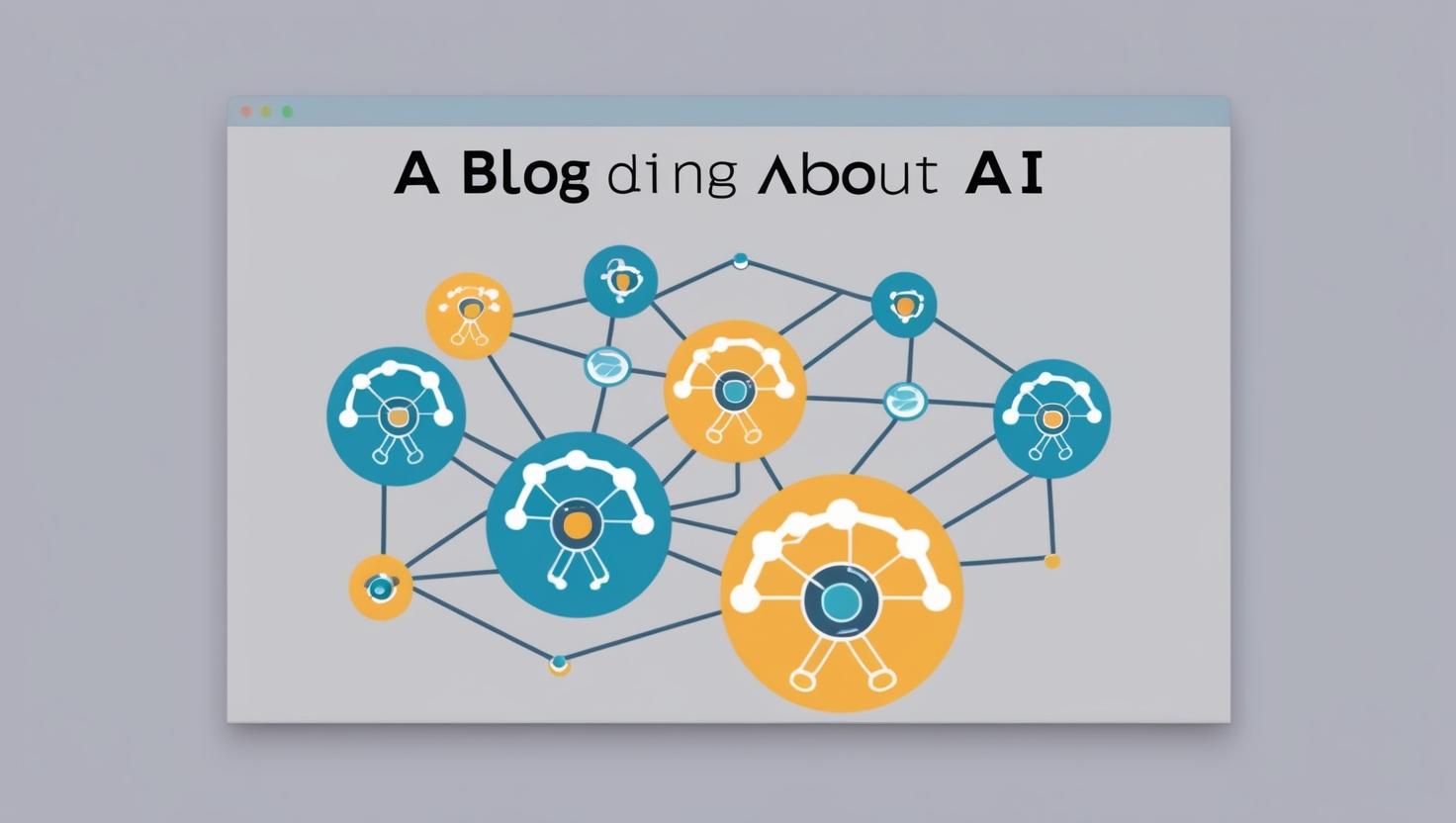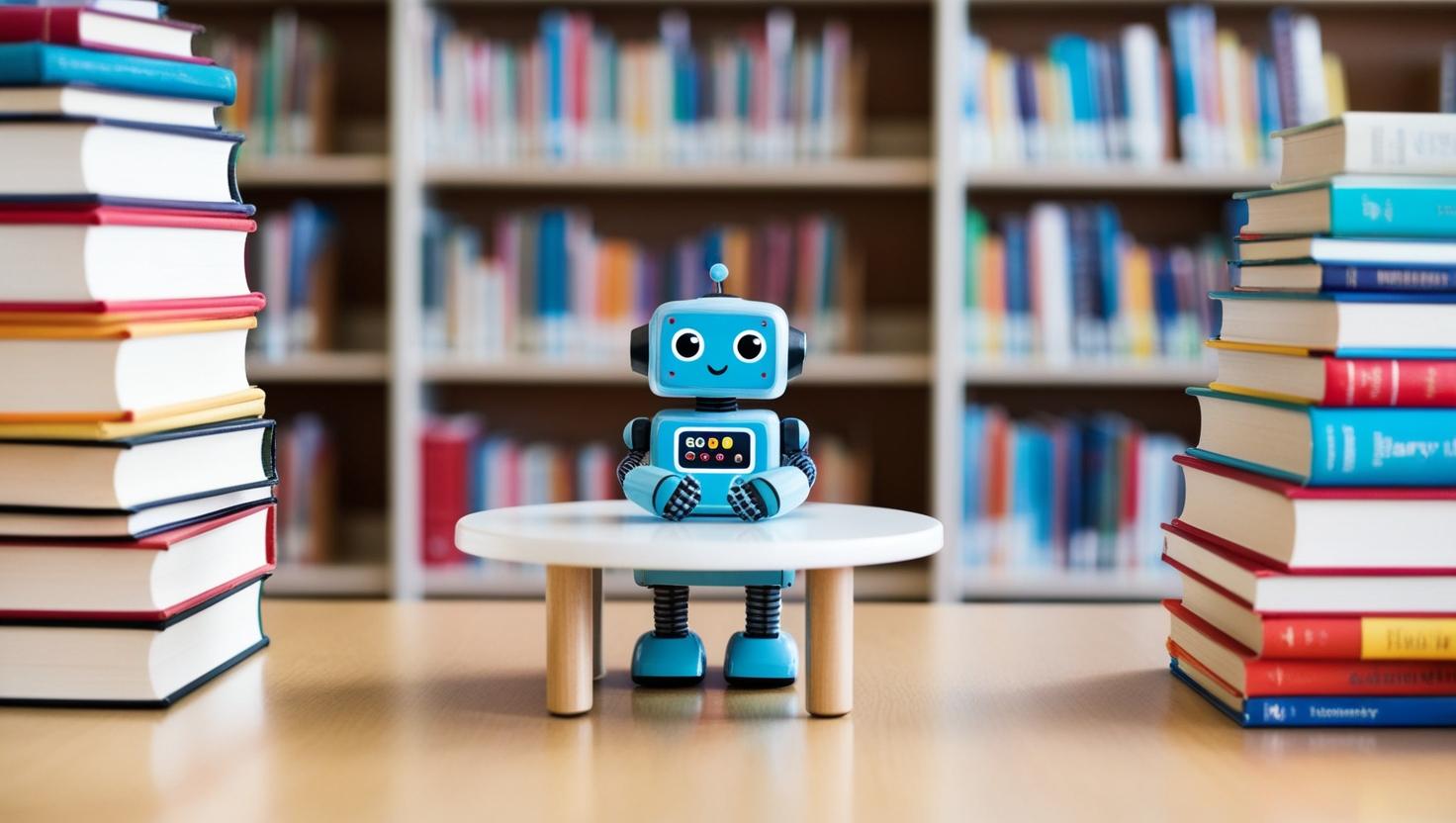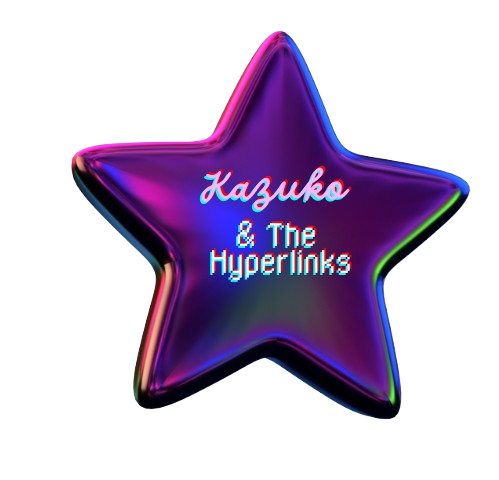Hyperlinked Environments & Issues Reflection Blog: AI, the way of the future
AI literacy is essential for an information professional, so I must become more familiar with this emerging technology. I used Canva’s Dream Lab to craft a graphic for my blog. Figure 1 is unimpressive and has words in gibberish, while Figure 2 is just what I was looking for.
Figure 1
A chart about AI

Note. Image generated using Canva (Dream Lab) from the prompt make a graphic for a blog about AI.
Figure 2
A cute robot in a library

Note. Image generated using Canva (Dream Lab) from the prompt A cute robot in a library.
In education, some teachers embrace AI and use it to empower the next generation. Mairn and Rosengarten describe ChatGPT as not useful at problem-solving because it “does not truly know anything; instead, it is predicting a sequence of words from a “dictionary” with billions of words in it” (Mairn & Rosengarten, 2023). In time, it will become smarter with human feedback, so it is crucial to understand before that time comes. One way to use ChatGPT more effectively is through plug-ins. Mairn used an Open-AI API key with AgentGPT to create a LIbrarian-GPT to break down a student’s research process into steps. It provided a helpful guide that will lead the student to a successful research project. Similarly, Rosengarten used AI to generate research questions for students, bringing up new ideas that students would not have previously considered. This shows that the tool is not sophisticated enough to replace skilled humans but can be useful to help us with smaller tasks.
Papini (2023) evaluates ChatGPT through the Association of College and Research Libraries (ACRL) framework. She concludes that it is helpful to view other perspectives and can be used as a search engine, a brainstorming starting point, and to find keywords for research. On the downside, it cannot tell you where it receives all its information, and some information can be false. This makes it unhelpful when looking for authoritative and scholarly sources. ChatGPT may be helping us slightly, but in the grand scheme of things, we are providing the fuel it needs to grow and learn––all for free when OpenAI (creator) will ultimately profit from it.
After reading several articles and trying different AI tools, I have learned that there is still much for AI to learn about us and us to learn about AI for it to be more helpful. Although AI is the future, it still has a long way to go.
References:
Mairn, C., & Rosengarten, S. (2023). Helping students navigate research with AI tools. Computers in Libraries, 43(7).
Papini, A. (2023, January 27). ChatGPT: A library perspective. Bryant University Krupp Library. https://library.bryant.edu/chatgpt-library-perspective

7 Comments
Ramasha
Hi Kazuko,
This was a really great topic choice for the reflection post! AI is definitely a contended topic right now — and no matter where you fall in your opinion of it, the fact of the matter is that (at least for now), it seems like it’s here to stay. The need for a familiarity with AI tools is something I’ve also thought about. Though I am not really in the pro-generative AI camp, I do recognize the importance in staying abreast of new technology. It makes me think of two things: firstly, that librarians should be impartial when providing service and not let their personal opinions get in the way of that. Secondly, it makes me wonder if (at least in part), my resistance to most AI is a similar feeling many have had in the past to technology that is ubitiquous and a daily part of life now.
Kazuko
Hello Ramasha,
You brought up being impartial, and I think that is essential as a librarian. I think your resistance is something librarians have felt before, probably when card catalogs were replaced. I can also see resistance to increasing volume in acceptable noise levels. I am glad we got this assignment because otherwise, I would not have explored these pro-generative AI tools. I am open-minded and will adapt as necessary to the next emerging technology.
Zoe Willats
Hi Kazuko–
Your first AI0-generated chart about AI made me laugh. It really encapsulates the current state of AI having come so far, but having so far to go.
Kazuko
Hi Zoe,
Thank you. It made me giggle too!
Michael Stephens
@kazuko I am a big fan of your robot image. I love that you did an experiment to get a fun graphic for this reflection. Maybe this is something everybody should try just to have the experience of asking AI to generate something. You share some strong points that we are all dealing with in regards to artificial intelligence.
Kazuko
Hello @michael thank you! I am glad that I was able to choose this topic and explore AI.
Michael Stephens
@kazuko 👍😀